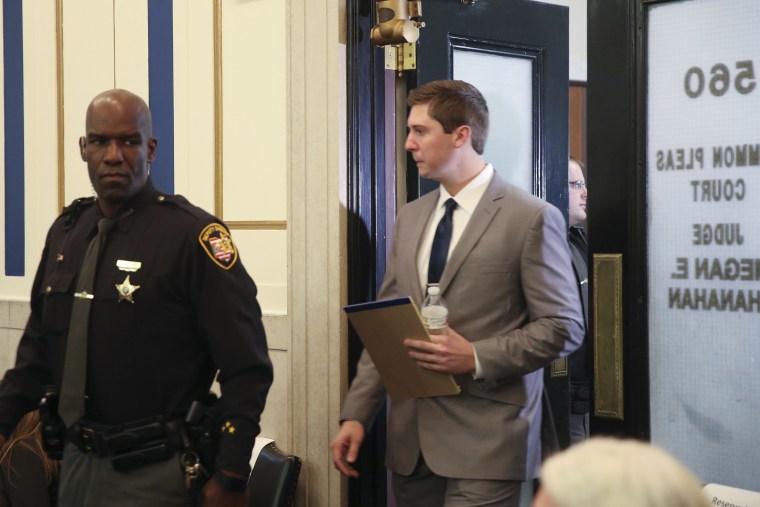Jury deliberations began Wednesday in the murder trial of Ray Tensing, the white police officer who fatally shot Sam DuBose, an unarmed black man, during a traffic stop over a missing front license plate last year.
An attorney for Tensing, 26, who was fired from the University of Cincinnati police after the shooting in July 2015, said in closing arguments that prosecutors had tried to inject race as "a smoke screen" in the trial.
Tensing has said he shot DuBose while being dragged by DuBose's car, but the prosecution said evidence countered that claim, saying Tensing's body camera video, witness testimony and physical evidence all rebutted his story.
Hamilton County Prosecutor Joe Deters told the jury of 10 whites and two blacks: "The evidence is overwhelming that there was absolutely no justification" for shooting DuBose.

But defense attorney Stewart Mathews insisted that Tensing was trying to keep from being run over.
"He was in sheer terror," Mathews told jurors. "The evidence is very clear that a car can be just as deadly as a gun or knife."
Related: What to Know in Case Against Ex-Cincinnati Cop Ray Tensing
Mathews told jurors that prosecutors failed to prove that Tensing killed DuBose, 43, on purpose, a finding required to convict him of murder. He said they also didn't prove that Tensing acted in a fit of rage or sudden passion, which is required to convict him of voluntary manslaughter.
City officials met with civil rights and faith leaders in the weeks before the trial to reduce tension over the racially charged case, which brought demonstrators — including activists from Black Lives Matter — to the courthouse.